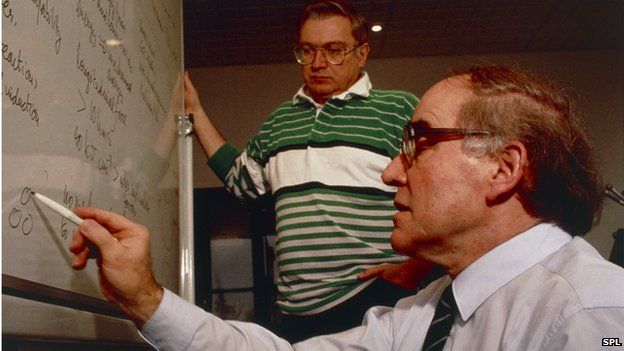'Cold fusion' chemist Martin Fleischmann dies
- Published

Martin Fleischmann, the chemist who with Stanley Pons claimed in 1989 to have achieved "cold fusion", has died.
The claims set the science world alight, because the simple experiment would have been the source of cheap and practically limitless energy.
But the results could never be replicated, and the idea of fusion in normal laboratory conditions is now almost completely discredited.
Dr Fleischmann's son reported that he had died on Friday, aged 85.
The Czech-born chemist moved to England in 1938, attaining a PhD at Imperial College London.
He gained acclaim as an electrochemist at the University of Southampton and was working with American scientist Stanley Pons at the University of Utah when the controversial experiment, later reported in the Journal of Electroanalytical Chemistry and Interfacial Electrochemistry, was carried out.
From first reports in March 1989 of the possibility of room-temperature fusion, groups feverishly attempted to repeat the pair's findings, using the metal palladium and electricity to split molecules of normal and "heavy" water, a form containing a variant of hydrogen.
None of them saw the same release of excess heat that Fleischmann and Pons had attributed to nuclear fusion. In time, accusations of "sloppy" work led to accusations of outright fraud, and the idea of cold fusion retired to the fringes of science.
The pair moved to France in 1992 in order to continue experiments designed to validate their work, but Fleischmann returned to England in 1995 and became increasingly distant from the small research community still dedicated to recreating the initial findings.
He had suffered from Parkinson's disease for a number of years.
- Published23 March 2009
- Published5 March 2002